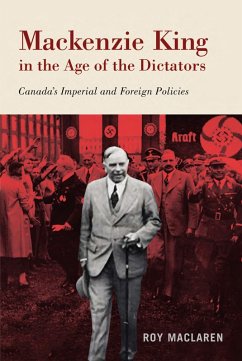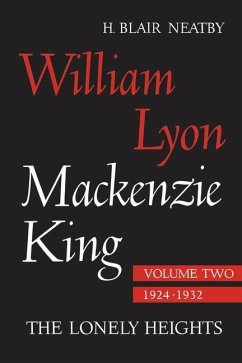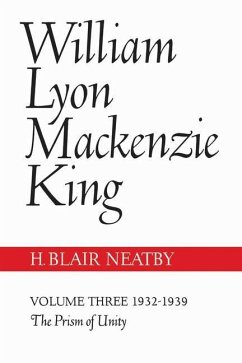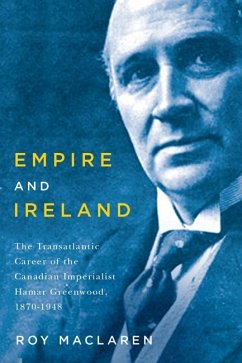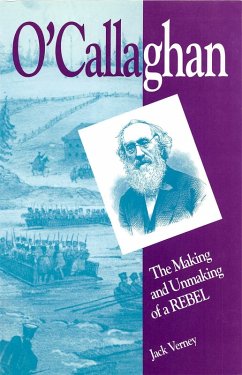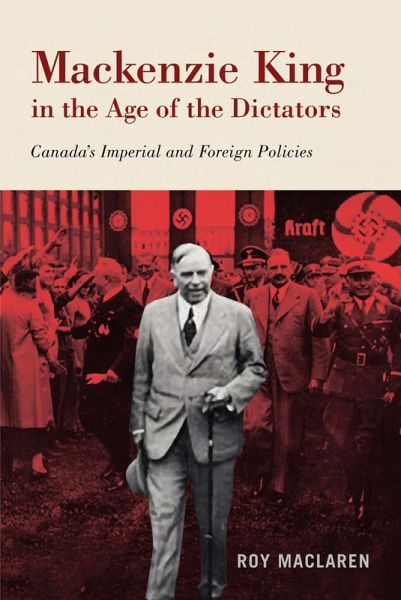
Mackenzie King in the Age of the Dictators (eBook, PDF)
Canada''s Imperial and Foreign Policies
Versandkostenfrei!
Sofort per Download lieferbar
20,95 €
inkl. MwSt.
Weitere Ausgaben:

PAYBACK Punkte
10 °P sammeln!
Until the outbreak of hostilities in 1939, Mackenzie King prided himself on never publicly saying anything derogatory about Hitler or Mussolini, unequivocally supporting the appeasement policies of British prime minister Neville Chamberlain and regarding Hitler as a benign fellow mystic. In Mackenzie King in the Age of the Dictators Roy MacLaren leads readers through the political labyrinth that led to Canada''s involvement in the Second World War and its awakening as a forceful nation on the world stage. Prime Minister King''s fascination with foreign affairs extended from helping President T...
Until the outbreak of hostilities in 1939, Mackenzie King prided himself on never publicly saying anything derogatory about Hitler or Mussolini, unequivocally supporting the appeasement policies of British prime minister Neville Chamberlain and regarding Hitler as a benign fellow mystic. In Mackenzie King in the Age of the Dictators Roy MacLaren leads readers through the political labyrinth that led to Canada''s involvement in the Second World War and its awakening as a forceful nation on the world stage. Prime Minister King''s fascination with foreign affairs extended from helping President Theodore Roosevelt exclude "little yellow men" from North America in 1908 to his conviction that appeasement of Hitler and Mussolini should be the cornerstone of Canada''s foreign and imperial policies in the 1930s. If war could be avoided, King thought, national unity could be preserved. MacLaren draws extensively from King''s diaries and letters and contemporary sources from Britain, the United States, and Canada to describe how King strove to reconcile French Canadian isolationism with English Canadians'' commitment to the British Commonwealth. King, MacLaren explains, was convinced by the controversies of the First World War that another such conflagration would be disruptive to Canada. When King finally had to recognize that the Liberals'' electoral fortunes depended on English Canada having greater voting power than French Canada, he did not reflect on whether a higher morality and intellectual integrity should transcend his anxieties about national unity. A focused view of an important period in Canadian history, replete with insightful stories, vignettes, and anecdotes, Mackenzie King in the Age of the Dictators shows Canada flexing its foreign policy under King''s cautious eye and ultimately ineffective guiding hand.
Dieser Download kann aus rechtlichen Gründen nur mit Rechnungsadresse in A, B, BG, CY, CZ, D, DK, EW, E, FIN, F, GR, HR, H, IRL, I, LT, L, LR, M, NL, PL, P, R, S, SLO, SK ausgeliefert werden.




